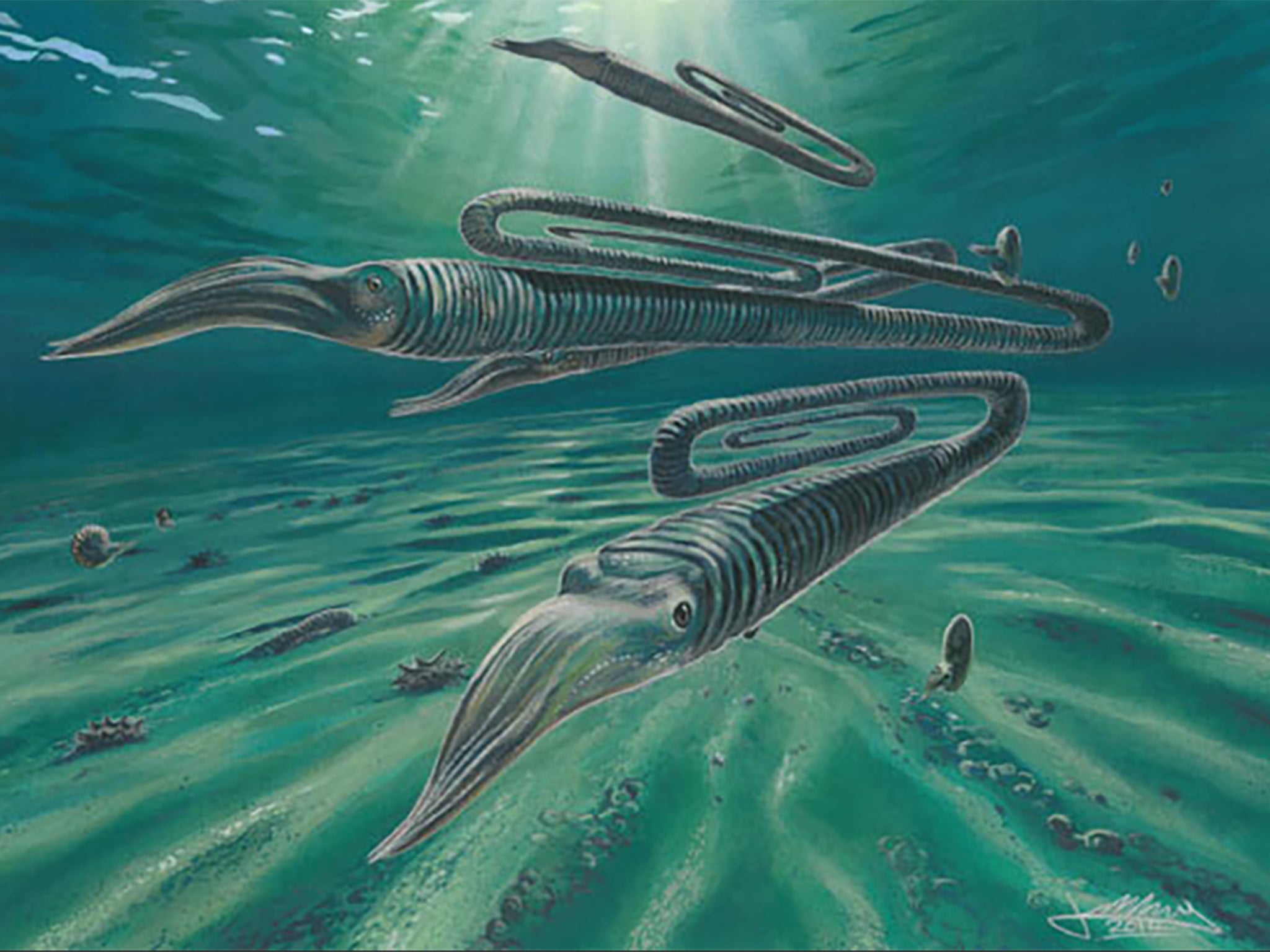Large squid-like creature that looked like a giant paperclip lived for 200 years — 68 million years ago
Modern cephalopods typically live for less than years

A squid-like creature that existed 68 million years ago and whose 1.5-metre-long shell resembled a paperclip could have had a 200-year lifespan, researchers have said.
The animal, whose scientific name is Diplomoceras maximum (D. maximum), was an ammonite, a sub-group of extinct cephalopods.
Speaking of the creature’s size, Linda Ivany, a researcher at Syracuse University in New York, told the New Scientist: “It’s hard not to be entranced. It’s as tall as I am.”
Although scientists have long been aware of its impressive length, researchers did not know much about its biology, including how long the animal typically lived for.
Ms Ivany and her colleague Emily Artruc now believe the D. maximum may have lived for hundreds of years, after analysing samples taken from a half-metre section of one animal’s shell.
The pair found a pattern in the shell’s isotopes, which they think is linked to the release of methane each year from the seabed. As a result, they concluded that each new rib — or structural ridge — of the shell indicates a year of life.
“These shells grow by accretion, adding a new increment annually,” Ms Ivany explained.
Although some modern shellfish live beyond 200-years old, the estimated lifespan of the ancient cephalopod is unusual, given that its modern relatives, such as octopuses, usually live for under five years.
The research, which was presented last week to an online conference run by the Geological Society of America, will allow academics to learn more about the ancient creature’s ecology.
The D. maximum lived in the waters around Antarctica and its population suffered a mass extinction event at the same time as the dinosaurs, according to a 2016 study by Leeds University.
Subscribe to Independent Premium to bookmark this article
Want to bookmark your favourite articles and stories to read or reference later? Start your Independent Premium subscription today.

Join our commenting forum
Join thought-provoking conversations, follow other Independent readers and see their replies